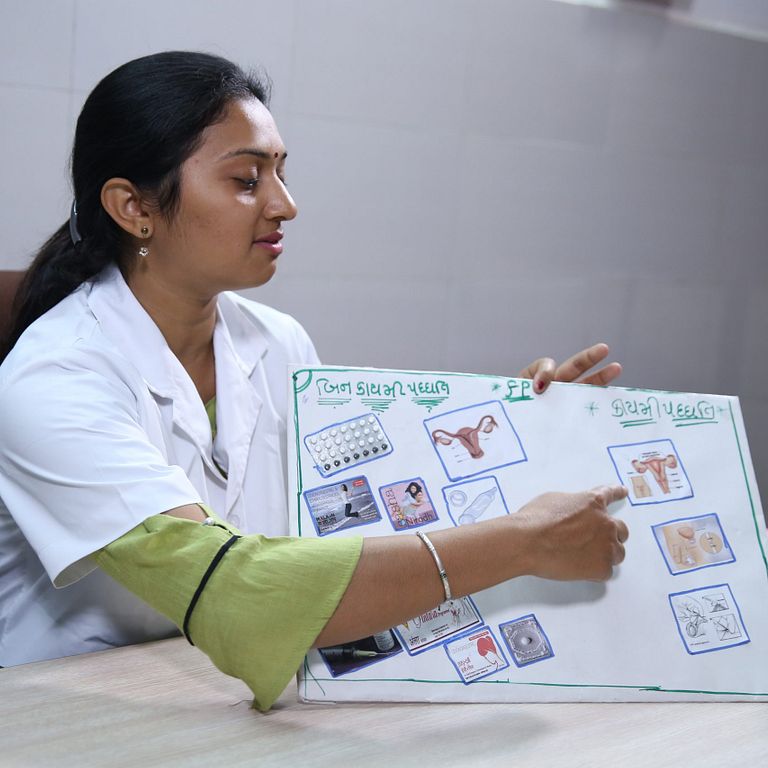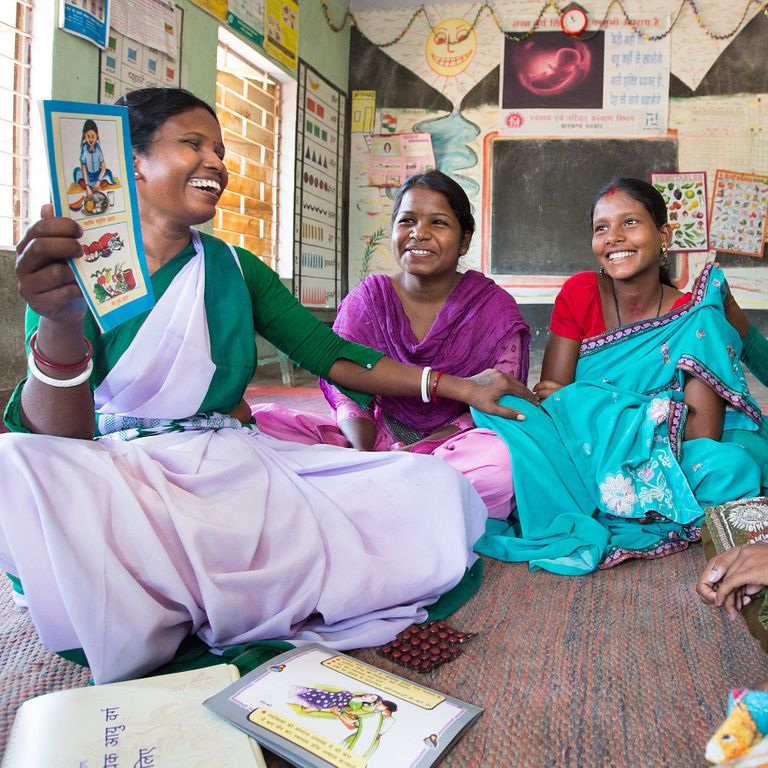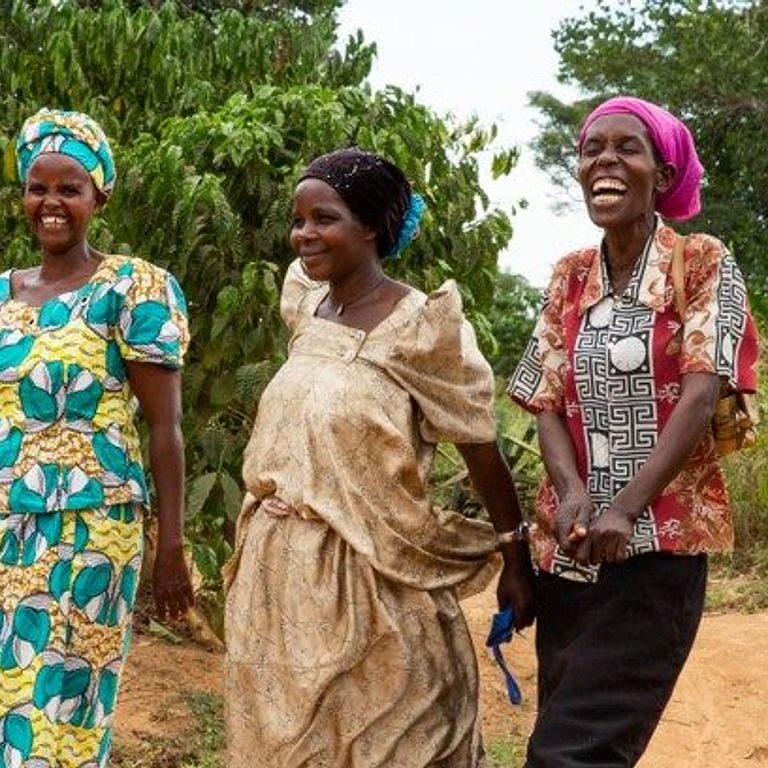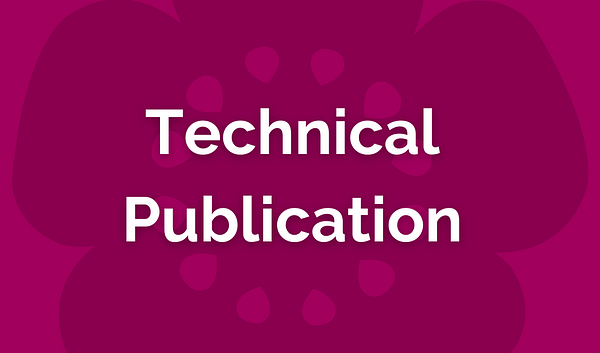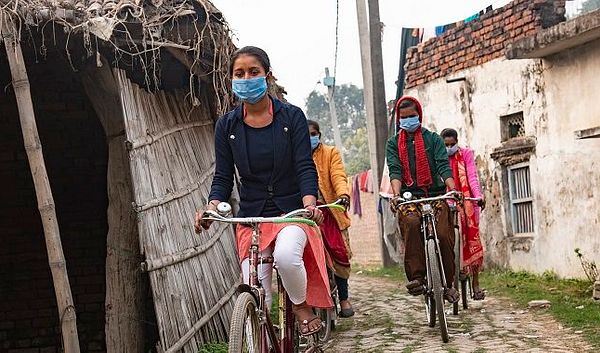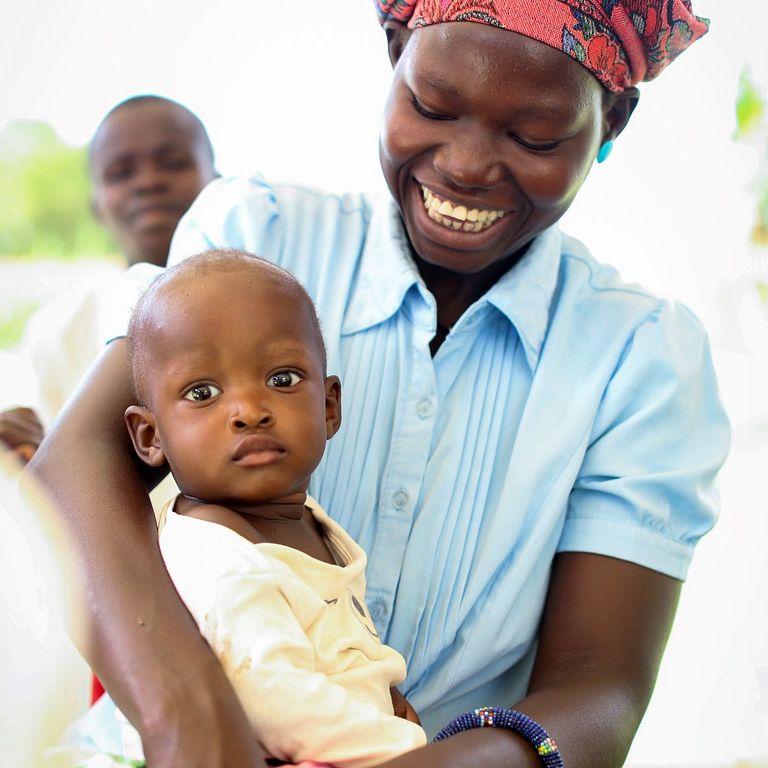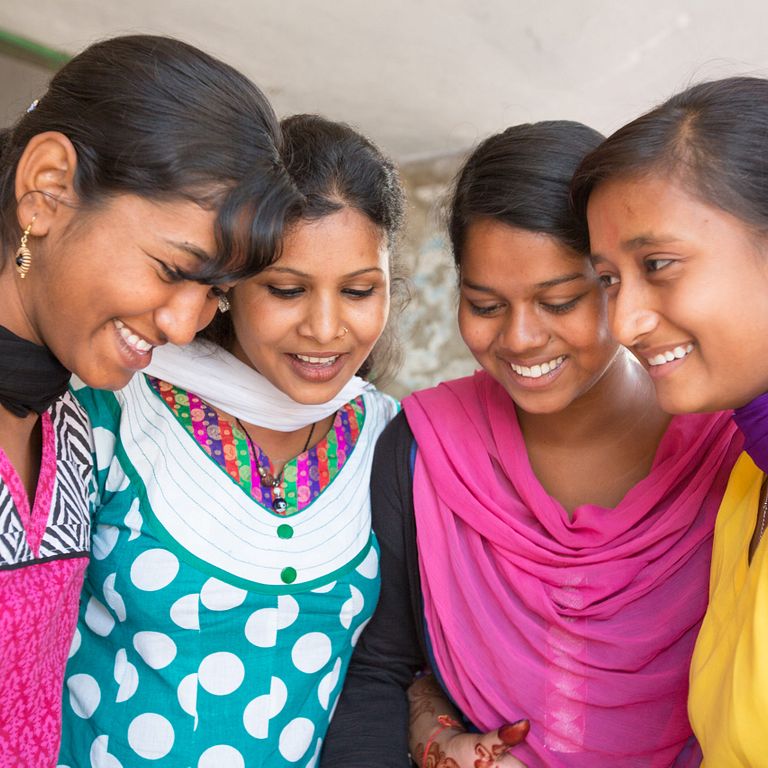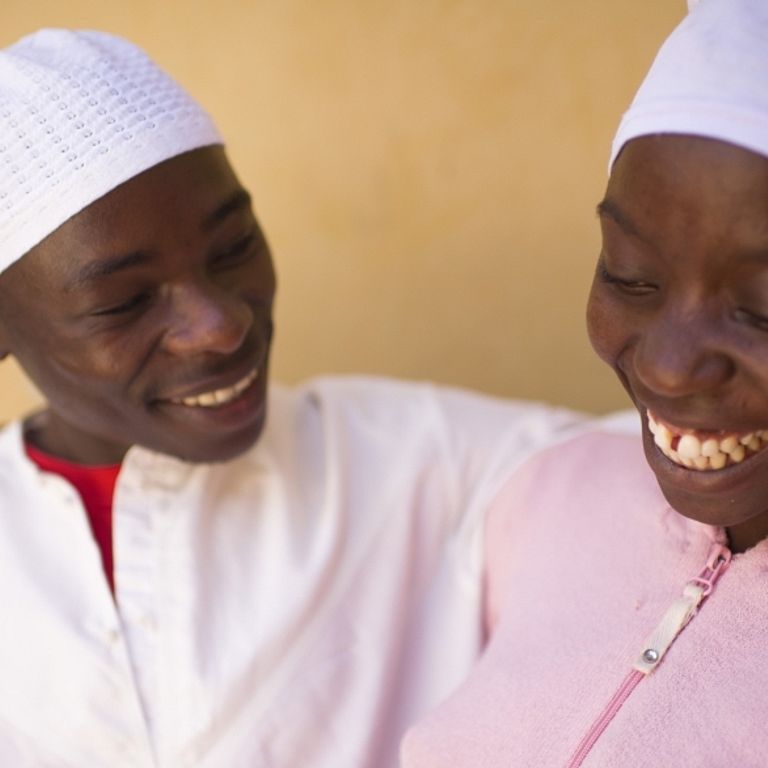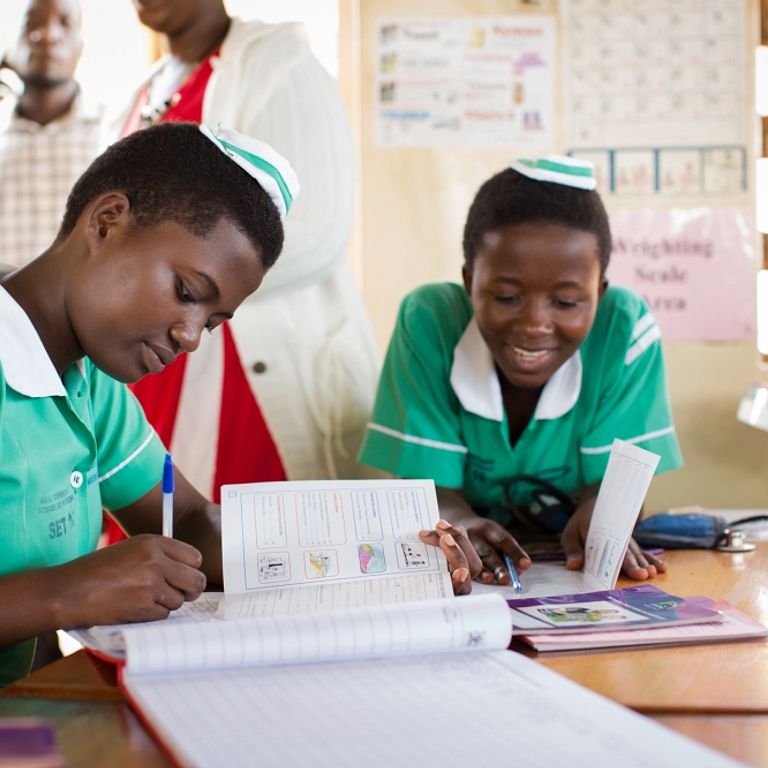India
India is one of the largest democracies in the world with a population of more than 1.39 billion, half of whom are young people under the age of 25.
The modern contraceptive prevalence rate for all women ages 15 to 49 is 56.5%. The maternal mortality ratio is 97 deaths per 100,000 live births. Of women ages 15 to 49, 29.3% have experienced physical or sexual violence.

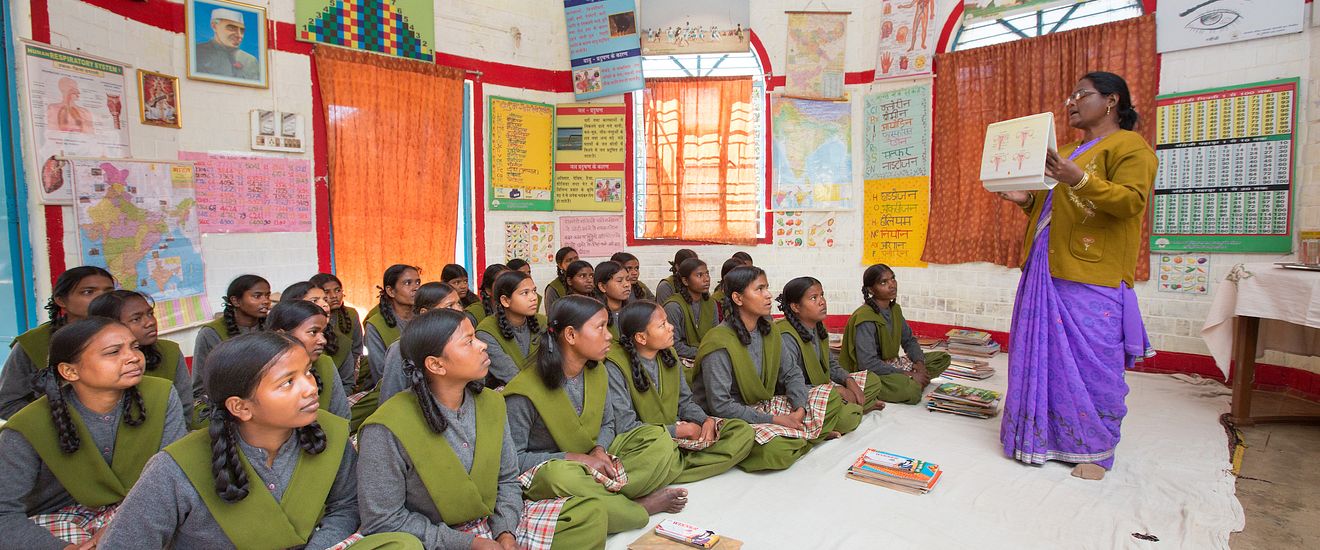
Our Work in India
Since 1988, EngenderHealth has helped expand and improve sexual and reproductive health and rights (SRHR) and maternal and obstetric care in India. EngenderHealth has provided more than two decades of technical support to national and state governments for high-quality family planning (FP) services, through advocacy initiatives and enhanced training programs. Our current work in India helps advance sexual and reproductive health (SRH) for adolescents, providing them with the information and services they need to make decisions that will positively affect themselves, their future families, and their communities.
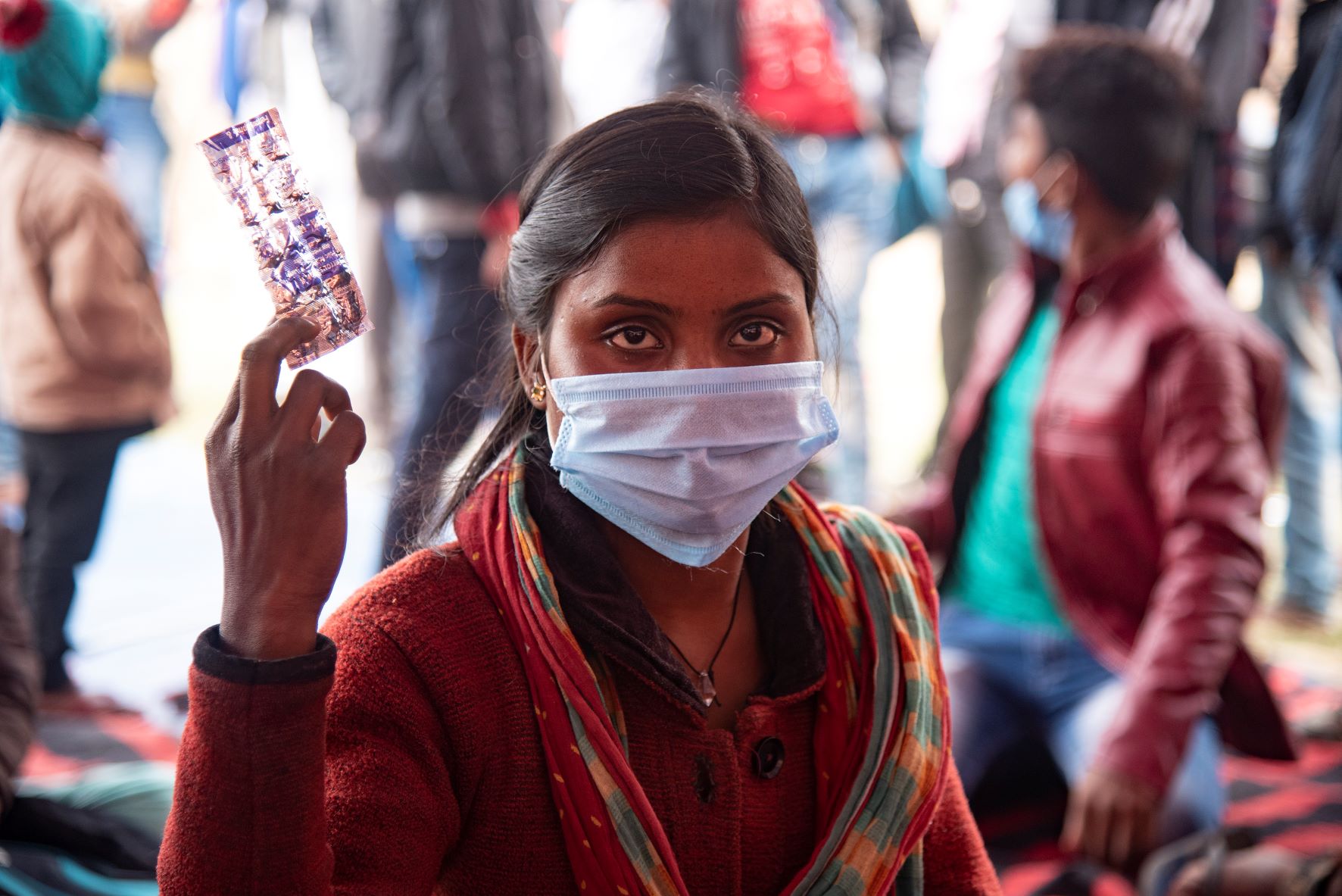
EngenderHealth is a member of the government of India’s core technical expert group for FP and has been credited by government and civil society with shaping guidelines and strategies for implementing FP programs at the state level. EngenderHealth has provided technical assistance to the government in developing resource packages for intrauterine devices (IUDs) and sterilization and introducing contraceptive injections and oral contraceptives.
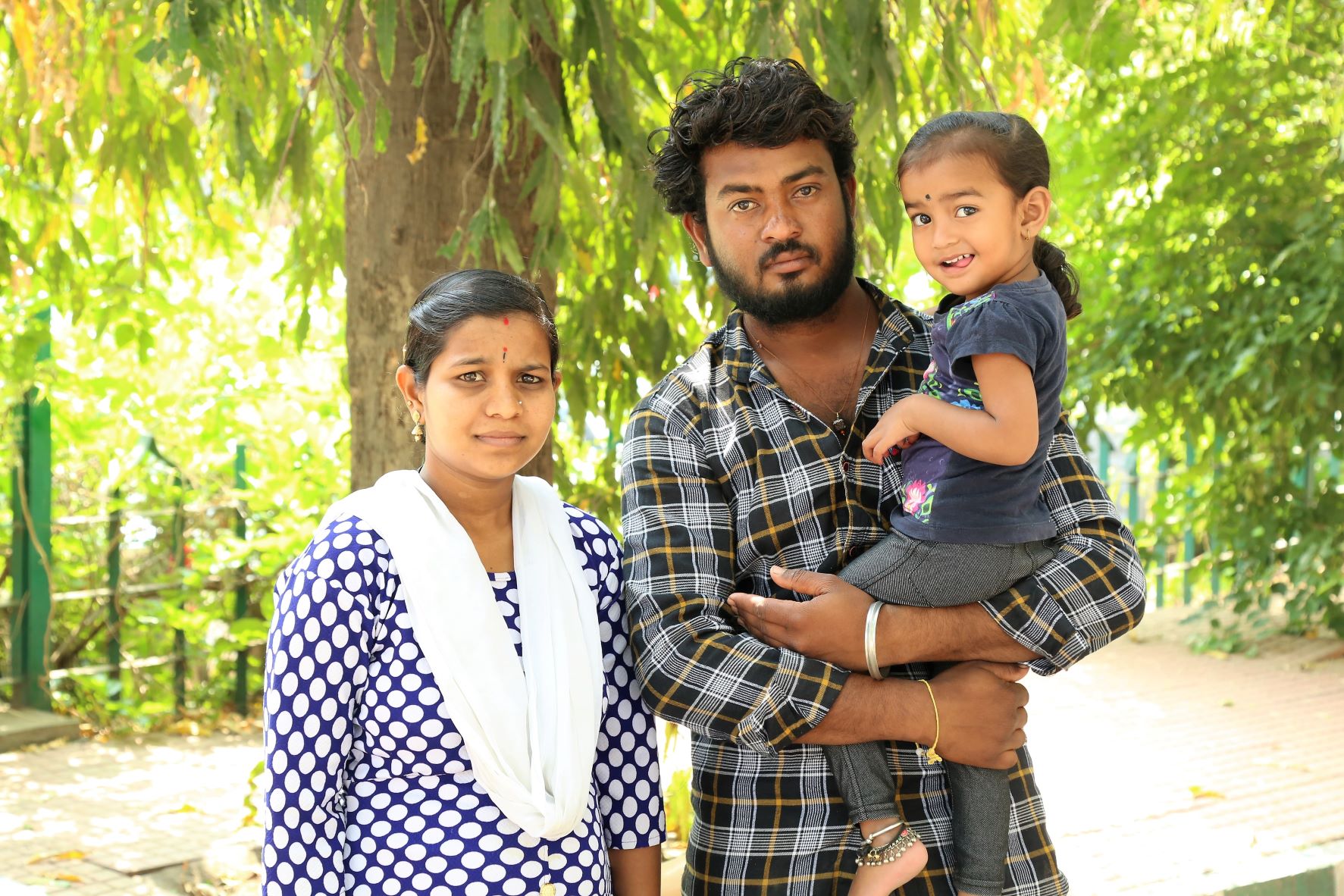
From 2008 to 2022, EngenderHealth supported adolescent and youth SRH through the TARUNYA program, funded the David and Lucile Packard Foundation. Initially we supported the state of Jharkhand and in 2011 we initiated support to the state of Bihar. This program ensured that state and civil society organizations could support the healthy growth and development of adolescents by facilitating access to the information, services, and enabling environment they need.
The MOMENTUM Safe Surgery in Family Planning and Obstetrics program supports the government of India to increase awareness of, equitable access to, and provision of high-quality, voluntary surgical obstetric and FP care. The program is also working to mitigate gender-based violence (GBV) by helping train healthcare providers to offer inclusive care for women and girls, transform harmful gender norms, and strengthen psychosocial-support services at GBV referral centers.
EngenderHealth has also partnered with the Global Alliance for Improved Nutrition (GAIN) to create an overarching strategy for comprehensive gender integration into large-scale food fortification (LSFF) programs in India. After conducting a comprehensive gender analysis and risk assessment of LSFF interventions, we will work with GAIN and other LSFF partners to integrate a gender lens into work plans, project indicators, and the results framework, and strengthen the capacity of LSFF supply chain actors to integrate gender into their interventions.
In partnership with The YP Foundation, with funding from the World Health Organization India, EngenderHealth supported young people to become change agents in India’s response to COVID-19. We meaningfully engaged with young people and enable them to amplify their voices through national- and state-level campaigns and participate in stopping the transmission of COVID-19 in their communities. The program also addressed the impact of COVID-19 on the SRH needs of young people.
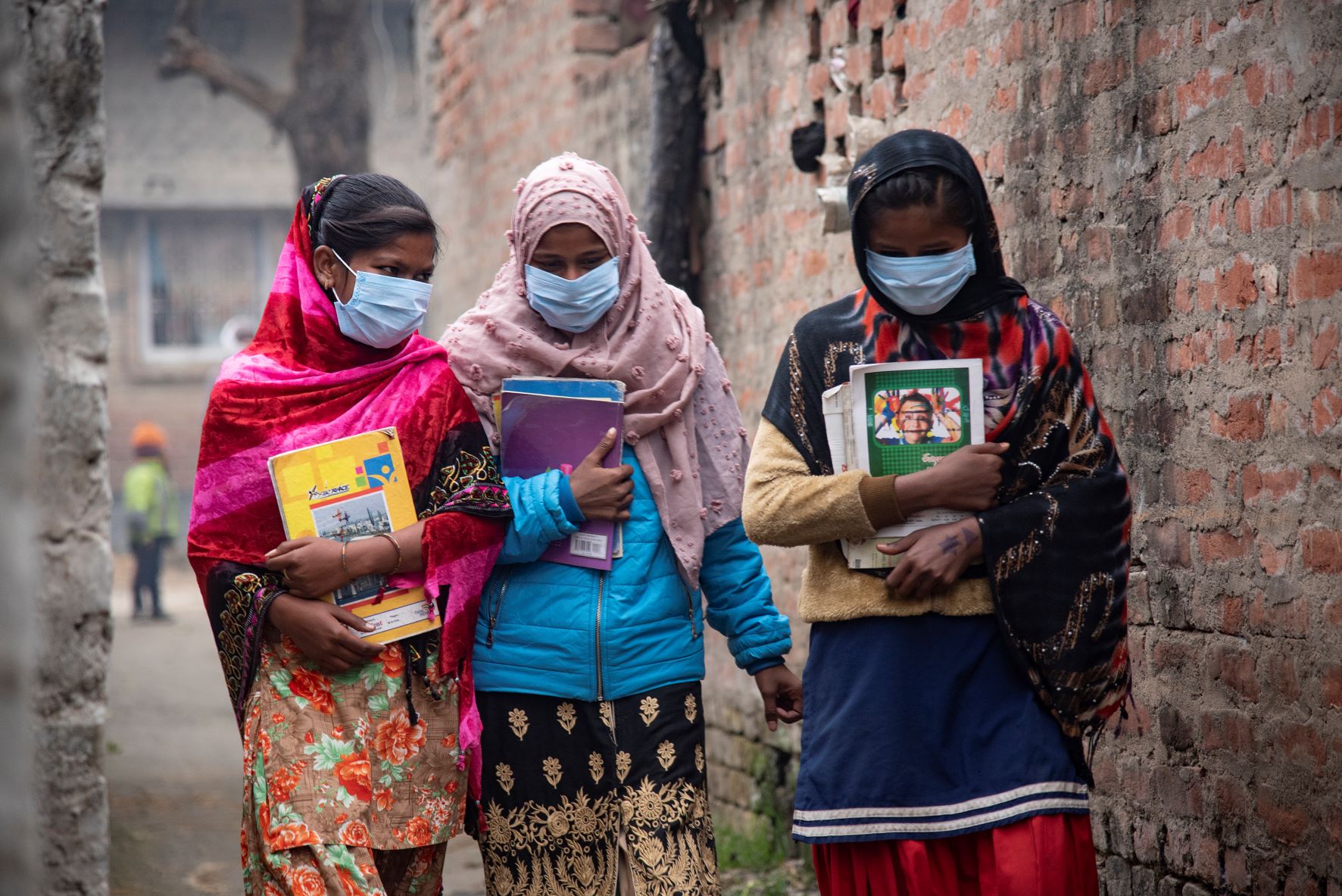
Through this unique two-month program, Engaging Adolescent Girls Champions (AGCs) for Newborn Girls, with support from UNICEF, EngenderHealth worked with the government of Bihar to engage adolescent girl peer educators to serve as AGCs to improve the survival of newborn girls by addressing gender inequalities. The program focused on expanding knowledge of newborn care among AGCs; improving newborn care knowledge and practices in the community; and increasing understanding of gender barriers that affect care of newborn girls in the AGC’s communities. Through the program, EngenderHealth trained and supported 1,005 AGCs, whose outreach efforts contributed to 531 newborn girls receiving follow-up care.
Our Strengthening Institutional Capacity in Karnataka and Maharashtra for the Sustainable Delivery of Quality Postpartum Family Planning and Postabortion Family Planning Methods (KARMA) program was funded by the Bill & Melinda Gates Foundation from 2017 to 2021. Through this program supported a total of 144 facilities across 34 districts. The KARMA program averted approximately 250,331 unintended pregnancies, 152,204 abortions, and 1,274 child and 224 maternal deaths. It also provided 493,613 couple years’ protection and saved $6.9 million in direct healthcare costs.
Through the Expanding Access to IUD Services in India (EAISI) program, EngenderHealth supported the state governments of Rajasthan and Gujarat to improve access to high-quality, voluntary IUD services to reduce maternal mortality and morbidity ratios. We helped initiate postpartum IUD services in 95 facilities and strengthened services in 263 facilities; we also initiated interval IUD services in 33 facilities and strengthened services in 325 facilities.
Our Partners in India
- Agragami India, Integrated Development Foundation, MAMTA
- Government of India
- State Government of Gujarat
- State Government of Rajasthan
- The YP Foundation
